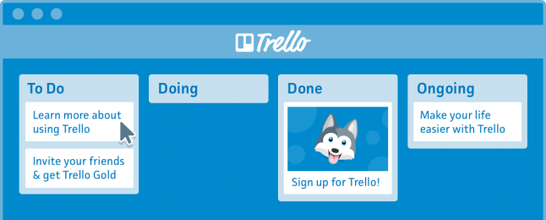Trending
Opinion: How will Project 2025 impact game developers?
The Heritage Foundation's manifesto for the possible next administration could do great harm to many, including large portions of the game development community.

Featured Blog | This community-written post highlights the best of what the game industry has to offer. Read more like it on the Game Developer Blogs or learn how to Submit Your Own Blog Post
A different type of Time Management for indie developers. How to apply some time management techniques to achieve your goals. My experience with these methods. I want to describe my own technique

I want to start with the following statement: "What works for me might not work for you". That's because we are different and we have to take care of different problems in our lives, but if you are an indie game developer and you are trying to make games only in your free time (I have a full time job) then, we have a common problem: TIME. I just want to share a time management method that has been working for me for the last 6 months.
In the past, my life was super chaotic: I coul dn't finish my projects, I didn't sleep too much, I couldn't stay focus. In the end these things led to frustration and broken relationships with other people. So I decided to try a few time management techniques:
dn't finish my projects, I didn't sleep too much, I couldn't stay focus. In the end these things led to frustration and broken relationships with other people. So I decided to try a few time management techniques:
There is a classic timetable format that everybody tries:
8 to 8 30 - Eat
8 30 to 9 30 - Gym
9 30 to 18:30 - Work
And so on
I tried this a few times in the last couple of years and every time I dropped it after a week or two. It felt like I was a machine. Also if a task takes longer than you planned, the whole day is screwed.
 Next, are the task priority techniques. Every day you have a list of tasks or a TO DO list with different priorities and you reserve some time for them. Here we can mention:
Next, are the task priority techniques. Every day you have a list of tasks or a TO DO list with different priorities and you reserve some time for them. Here we can mention:
These methods give good results at work where you spend up to 8 hours a day and you are a part of a hierarchy. At home it's harder to apply them if you are not super organized. These techniques can also fail as you are always interrupted by colleagues and friends etc.
The reason why these methods doesn't work is rigidity. They are not flexible to let you finish what you want to do for that day.
Six months ago I've started to work on my latest game Polandball: Can into Space. To finish the game, I didn't set goals for the next day, I set goals for the whole week. I remember that every Sunday, I said:
This week I'll work on a architecture task.
This week I'll work on some visual effects task.
This week I'll do this and that.
The whole architecture for the game can take a while to get it done so I split it in multiple tasks. I used Trello to manage all the tasks for the project. Trello also helped me a lot to visualize the progress.

I also used Google Calendar to set up all my meetings or places I need to be. It doesn't matter if it's only one or five, add them to the calendar. You can do this on on a Sunday evening, it takes only 5 minutes.
Two rules when I'm trying to set up a meeting:
If someone during the week wants to meet with you, try to set the meeting for the next week.
If someone cancel the meeting/activity during the week, don't replace with another meeting. You can win some free time to relax or to work on your project.
After a few months, the game was finished and I've started to do some marketing. I know, I should have started this earlier during in the development process. I wrote here how I failed.
 Marketing takes lots of time and effort. I remember that I didn't sleep too much (about 3-4 hours a night) in the first two weeks when the game was launched. And of course this screwed all my program and chaos was once again over me. However, I realized that I can integrate marketing in my time management plan.
Marketing takes lots of time and effort. I remember that I didn't sleep too much (about 3-4 hours a night) in the first two weeks when the game was launched. And of course this screwed all my program and chaos was once again over me. However, I realized that I can integrate marketing in my time management plan.
And here is how:
One week I do programming stuff and maybe some tutorials
Next week I do only marketing stuff. I also spend my time reading articles, write articles, find new games.
In the future I also want to add marketing tasks in Trello. This will remind me what I have to do for the marketing week.
Rules:
If it's Sunday evening and I didn't finish my programming tasks, I just leave them like that until the next programming week.
If I'm on a programming week and let's say that IGN wants to write about the game and they need an article the next day, of course I'll do only marketing that day.
Never shift days. If I need to do a marketing day during the programming week, I never say "Ok, I can put a programming day into the marketing day". Never. That's why I have the whole week assigned to do tasks.
Assigning tasks for the whole week and make an alternate between marketing and programming really works for me. In the end, my advice is to try different techniques and see what fits you and try to find your own method.
Thanks
Sergiu Craitoiu, writer at http://in2gpu.com/
Follow me on Twitter: https://twitter.com/SergiuCraitoiu
Read more about:
Featured BlogsYou May Also Like